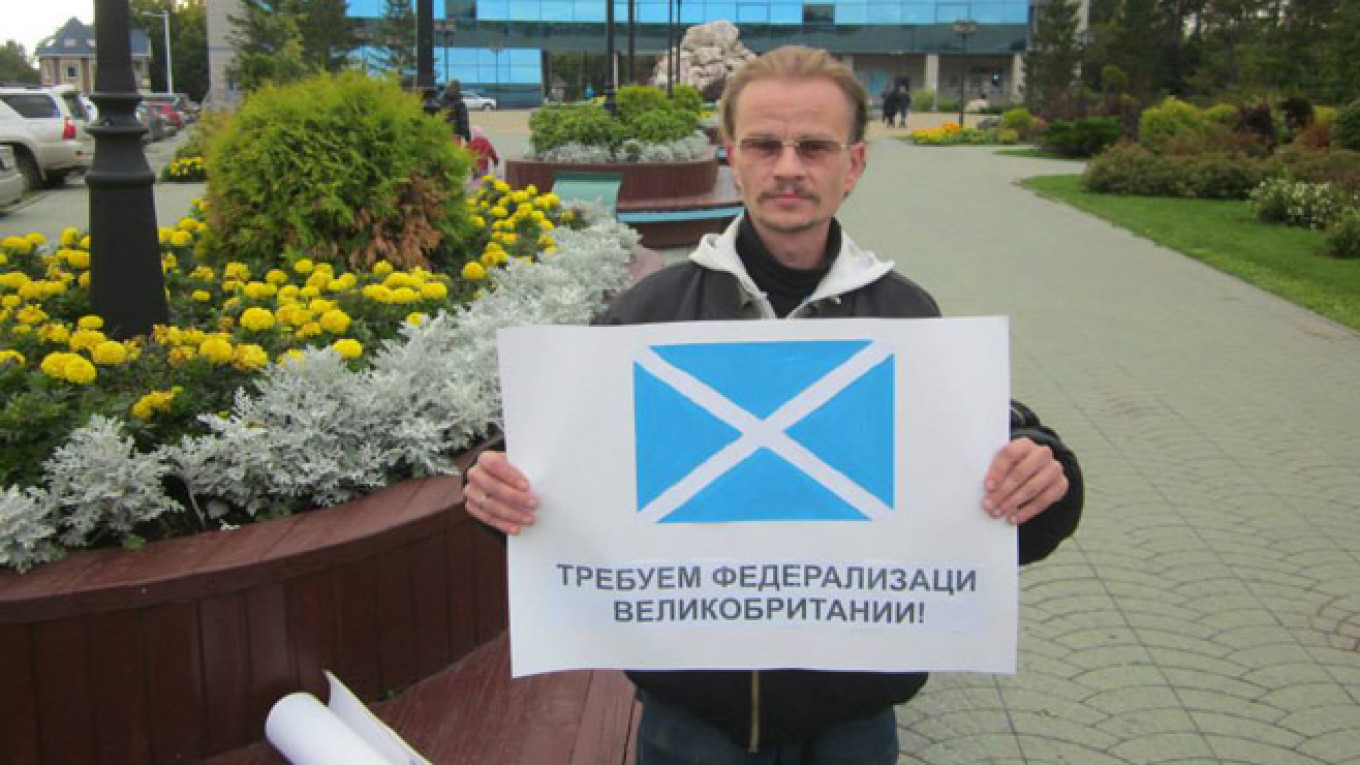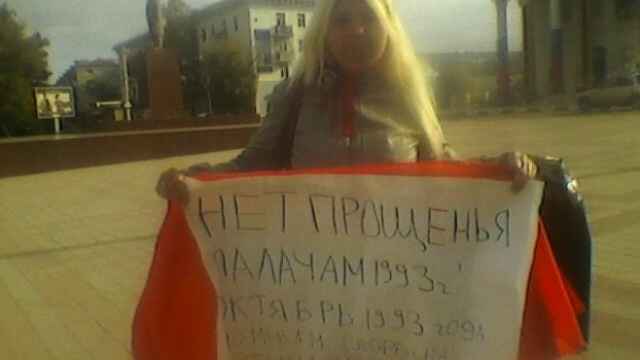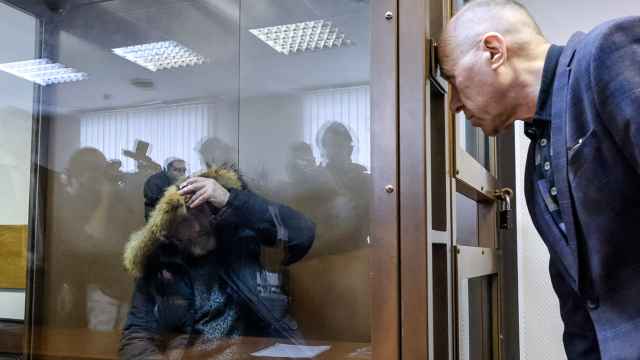As Scottish voters head to the polls on Thursday to determine whether to declare independence from the United Kingdom, The Moscow Times takes a look at some of Russia's lesser-known separatist movements.
Russia has witnessed its fair share of homegrown movements seeking varying degrees of distance from the motherland. Chechnya, for instance, has sought full secession in the past, while some ethnically and linguistically distinct regions have simply sought greater autonomy, as was the case with the oil-rich republic of Tatarstan.
In defining the country's federal structure, the Russian Constitution distinguishes between republics, regions, autonomous districts and cities of federal importance, statuses that carry differing degrees of autonomy from the central government.
But as George Orwell might have put it, some of Russia's federal subjects are more equal than others.
Republics, which were historically defined along ethno-cultural lines, have more rights than regions. Unlike regions, republics are entitled to proclaim their own state languages, which are then used alongside Russian in local and regional state institutions. Republics also have their own constitutions and legislatures, as well as greater latitude in the management of resources.
Sporadically throughout Russia's recent history, this disparity has served as inspiration for calls for greater autonomy.
The Urals Republic
In 1993, amid the political instability that defined Boris Yeltsin's first years in power, the Sverdlovsk region's then-Governor Eduard Rossel unilaterally declared that his region would become the "Urals Republic" and would draft its own constitution, a right that Russia endowed only to the legitimate republics among its federal fold.
Rossel and his advisors said at the time that their self-proclaimed status as a republic would not undermine the country's territorial integrity.
The move was apparently motivated by the desire of regional authorities to gain greater control over the local metallurgy and heavy machinery industries.
After the so-called Urals Republic drafted and implemented its own "constitution" in late October 1993, Yeltsin dissolved the initiative and dismissed the Sverdlovsk region's legislature. Rossel also lost his job over the controversy.
The Siberian Regionalist Movement
Siberian regionalist movements have been demanding greater autonomy for the variously defined region east of the Urals since the 19th century. At its inception, only marginal factions of the movement advocated actual secession from Russia.
In its modern form, the movement does not advocate for separation from Russia, nor does it define the boundaries of a would-be "independent" Siberia.
Novosibirsk social activist Artyom Loskutov, who had planned a street performance he referred to as a "march for the federalization of Siberia," told The Moscow Times last month that his initiative was meant merely to draw attention to inequalities in Moscow's treatment of the country's different federal subjects.
The movement's semi-serious plea to change the status of Siberia's regions — including the Novosibirsk region — to those of republics has not been embraced by federal authorities. Novosibirsk authorities forbade Loksutov's rally, and Russia's state Internet watchdog, Roskomnadzor, blocked access to more than a dozen media reports and social media pages about the event.
Ingrian Revolt Against the Bolsheviks
The historic homeland of Ingrians, a Finnic people, lies in northwestern Russia, between Lake Ladoga and the Gulf of Finland. It incorporates portions of Karelia and the Leningrad region, as well as St. Petersburg.
In the aftermath of the Russian revolution of 1917, some 500,000 Ingrians petitioned the new authorities for autonomy, according to researcher James Minahan. Others had proposed the creation of an independent state.
Soviet authorities at the time initially agreed to grant Ingria the autonomy it desired within the country, but ultimately failed to deliver on their promise. This led to clashes between the Ingrians and Bolsheviks in 1919, when Red Army troops were dispatched to the autonomy-seeking region. Ingrians declared their independence in 1920. A national district was established for the Ingrian people in 1928.
In 1938, Soviet authorities dissolved the district following a purge of the Ingrian leadership, according to Minahan.
After World War II, many Ingrians attempted to seek refuge in Finland, but were repatriated to the Soviet Union at the demand of the authorities, and eventually scattered across the European portion of the country.
Presently, some Ingrians still live in their traditional homeland, but they are not recognized as a separate ethnic group or as a population indigenous to the region.
Contact the author at [email protected]
A Message from The Moscow Times:
Dear readers,
We are facing unprecedented challenges. Russia's Prosecutor General's Office has designated The Moscow Times as an "undesirable" organization, criminalizing our work and putting our staff at risk of prosecution. This follows our earlier unjust labeling as a "foreign agent."
These actions are direct attempts to silence independent journalism in Russia. The authorities claim our work "discredits the decisions of the Russian leadership." We see things differently: we strive to provide accurate, unbiased reporting on Russia.
We, the journalists of The Moscow Times, refuse to be silenced. But to continue our work, we need your help.
Your support, no matter how small, makes a world of difference. If you can, please support us monthly starting from just $2. It's quick to set up, and every contribution makes a significant impact.
By supporting The Moscow Times, you're defending open, independent journalism in the face of repression. Thank you for standing with us.
Remind me later.






